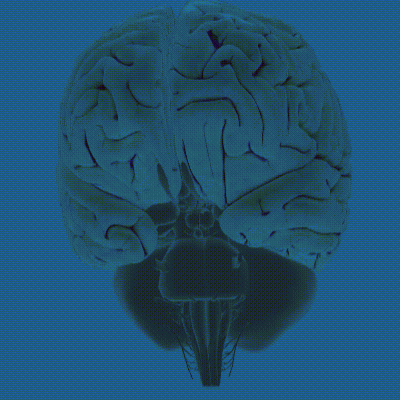Noise Pollution Isn’t Just Annoying — It’s Bad for Your Health
- Published27 Jun 2018
- Reviewed27 Jun 2018
- Author Knvul Sheikh
- Source BrainFacts/SfN

There’s no escaping the hum of traffic. In the Bridge Apartments, a cluster of four high-rise buildings straddling Interstate 95 in Manhattan, the rumble of cars and trucks driving by is so loud people have to raise their voices to talk. Even on the eighth floor, the noise level can be around 66 decibels — just less than a running vacuum.
In the 1970s, a team of psychologists discovered that children living on the lower, noisier floors had a hard time distinguishing similar words, such as “thick” and “sick.” They also had more difficulty reading than kids who lived on higher floors.
“In those conditions, noise may be masking opportunities to learn language,” says Jenny Saffran, a developmental psychologist at the University of Wisconsin Madison. By mimicking urban environments like the Bridge Apartments in her lab, Saffran has shown that background noise not only impairs children’s ability to recognize familiar words, it also prevents toddlers from mastering new ones.
“When noise reaches a certain level, you can no longer perceive important stimuli in your environment, like people talking to you, or your attention is drawn away from these important stimuli by other acoustic signals,” she says.
The consequences of the constant urban rumble extend beyond childhood. Numerous studies have linked noise pollution to increased anxiety, depression, high blood pressure, heart disease, and stroke.
Even small increases in unwanted ambient sound have significant effects. In 2011, for example, scientists studying people living near seven major European airports found that a 10-decibel increase in aircraft noise was associated with a 28 percent increase in anxiety medication use. Another study found that people living in areas with more road traffic noise were 25 percent more likely than those living in quieter neighborhoods to have symptoms of depression. Similarly, people exposed to noise pollution were found to be significantly more likely to have heart problems like atrial fibrillation compared to those unaffected by noise.
Researchers suspect that noise aggravates these health conditions by inducing higher levels of stress, says Thomas Münzel, a cardiologist at the Johannes Gutenberg University in Mainz, Germany. “When you experience noise in the middle of the night, you have an awakening reaction,” Münzel says. “You can close your eyes but you cannot close your ears.”
Whether it’s the hum of an always-on TV, the beeping of hospital equipment, the honking of cars, or the window-rattling noise of airplanes overhead, noise triggers the brain’s “fight or flight” response, Münzel says.
When someone experiences a stressful noise, the amygdala, an area of the brain that contributes to emotional processing, sends a distress signal to the hypothalamus. The hypothalamus immediately signals the adrenal glands to pump adrenaline into the bloodstream — an evolutionary measure to react rapidly in life-threatening situations.
Adrenaline and another stress hormone called cortisol bring on physiological changes, including a spike in heart rate and blood pressure. “Your body reacts so fast; you often can’t tell these changes happened,” Münzel says.
But chronic exposure to noise keeps this stress response activated continuously. Eventually, it starts to wear the body down, causing mental and physical health problems.
In 2013, Münzel and his colleagues simulated the detrimental effects of nighttime noise in a study of 75 healthy adults. The participants listened to recordings containing varying amounts of aircraft noise while they slept at home. Participants slept worse on the night they heard the most noise, and what’s more, lab tests conducted the next morning showed they had more vascular damage and inflammation and higher levels of stress hormones.
As the population grows, the number of people living in noisy urban areas will also increase, making up an ever-larger share of the population — the United Nations estimates that, by 2030, 60 percent of the world will live in cities, up from 54 percent in 2016. But there are ways to combat excessive urban noise, including changing aircraft routes, building road and railway barriers to reduce the level of noise that reaches nearby communities, using quieter hybrid and electric cars, and installing thicker insulation in homes and offices. Saffran says that big-picture solutions could go a long way in providing relief from the constant clamor around us.
CONTENT PROVIDED BY
BrainFacts/SfN



















